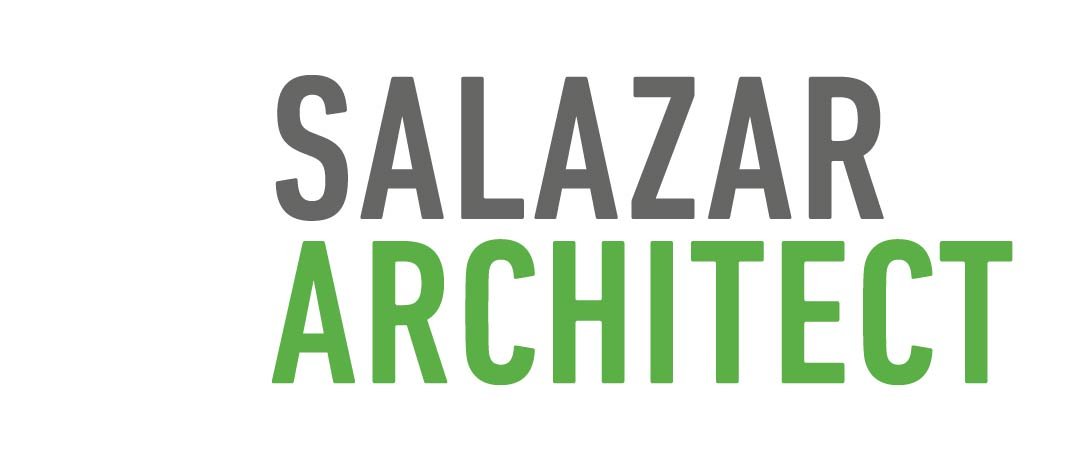Salazar Architect puts our enthusiastic support behind the Design Justice Demands.
Salazar Architect puts our enthusiastic support behind the Design Justice Demands. Our charge is, and will continue to be, confronting systemic racism in all its forms. We are redoubling our commitment to anti-racist work in everything that we do - from our work with clients and community members whose voices have for too long been excluded from the development process, to the design and construction process centered on the voices and experiences of marginalized communities, and ultimately addressing the crisis in affordable and sustainable housing that disproportionately impacts BIPoC and immigrant communities.
This commitment must also include an examination of systemic racism within the architecture profession itself. Even before the international movement for Black lives - following the deaths of Breonna Taylor, George Floyd, and Ahmaud Arbery and countless others - we have allied our firm with Black, Latino, Asian and other social movements, particularly before and during our founding as a firm in 2007. The last 13 years has shown that unchecked racism can creep into everything, including firms, the profession and the development and construction industry itself. This includes naming and confronting racism close to home and recognizing where we have work to do within Salazar Architect to build diversity, equity and inclusion within our own firm.
For these reasons we embrace Design Justice for Black Lives, which calls on design professionals to leverage their professional connections and privileges in the name of advancing justice. The demands call for:
01 Divest & Reallocate Police Funding
02 End CPTED Tactics
03 End Design of prisons and police stations.
04 Redefine metrics for affordable neighborhoods
05 Shift public policies
06 Enhance self determination
07 Detangle from exploitative practices
08 Preserve and invest in black cultural spaces
09 Reflect spatial injustice in design training & licensing
To learn more about the Design Justice Demands here: https://www.dapcollective.com/demands
A few months ago, we created an internal working group called Beyond Empowerment (BE): a space for conversations about what’s working and what’s not in our workplace, developments and the broader community. As the Design as Protest Collective states, “The design industry must take action to reverse the harmful roles that design, architecture, and urban planning have played in the systemic dehumanization and violence against Black people.” We at Salazar are working hard to meet the demands, and are engaging with Design as Protest Collective to continue to be impactful in more just built environment.
Following is a summary a few of our steps towards intentionally integrating the demands into our practice:
Reallocate Police Funding. We support these efforts by donating our time and resources to support campaigns for ballot measures like Here Together and other campaigns or organizations that are pushing for more funding towards housing and other supportive services. So far in 2020, Salazar has donated 50 hours to texting and phone banking initiatives and monetary donations to organizations that are pushing for a reallocation of police funding.
Enhance self-determination. We seek out clients that value intentional community design that integrates public voices into the design process to make sure community perspectives are at the center of our designs. Our goal in this context is not to be a benevolent helper, but to get results in cooperation with the community at large. Our Community Design Lab is beginning to more intentionally evaluate our public-interest design processes by asking key questions like “who is benefiting from this design process?” and “who is being harmed?” so we can practice community design in a way that can truly uplift marginalized voices and give community members agency over their built environment.
Detangle from exploitative practices. In early 2020 we restructured the firm around three Design Labs, which has energized our staff and honed our approach in a way that better serves BIPoC and immigrant communities (read more about it here). Staff spend 10% of their time in the Lab, advancing the firm’s knowledge through best practices research, pro-bono design work, and educational conferences. This structure allows us to pursue valuable work that is not tied to contractual relationships with clients so we can more effectively pursue a practice that is centered around values of community, sustainability, and well-being.
Lastly, Salazar Architect is working hard to build and maintain diversity, equity and inclusion through our practice. This work is ongoing, and we are committed to continuing these conversations long-term.
